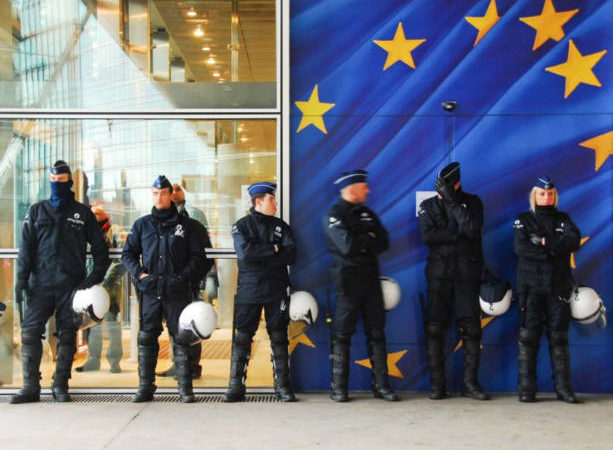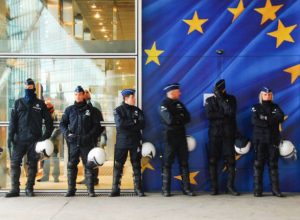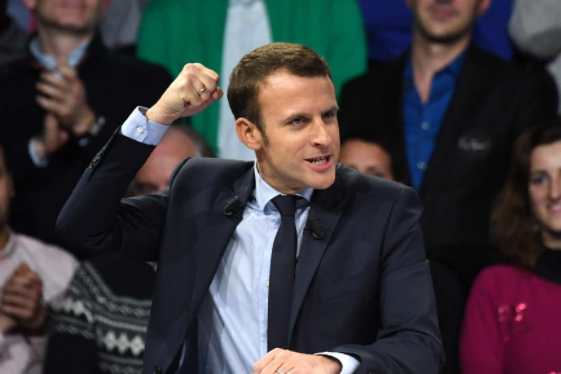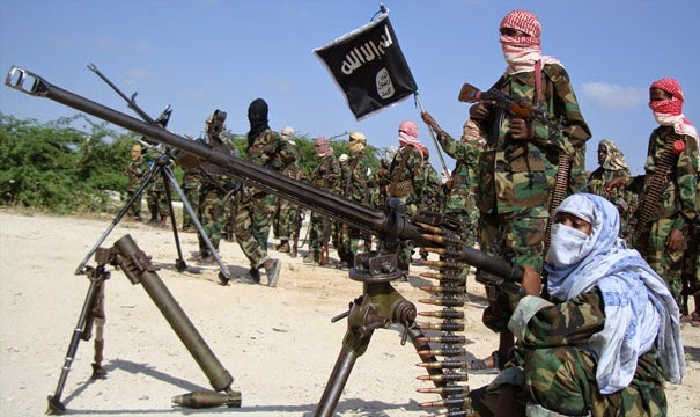France and Germany are resisting a plan by U.S. officials for NATO to take a bigger role in the fight against Islamic State in Syria and Iraq, in line with calls from President Donald Trump for the alliance to do more to combat terrorism.
Many alliance members hope the plan will be announced in Brussels next Thursday, when Trump attends his first NATO summit.
France and Germany have misgivings, allies involved in the discussions said.
“They are not buying it,” said a senior European NATO diplomat, who said some other nations including Greece and Italy were also wary of the plan.
“They want to know what difference would it make. All 28 NATO allies are already part of this effort,” the diplomat said, referring to a 68-nation U.S.-led coalition against Islamic State that includes all NATO members.
Among the concerns: NATO might be caught up in another costly, Afghan-style deployment, irk some Arab countries or risk confrontation with Russia in Syria.
French and German officials declined to comment, but Chancellor Angela Merkel left open the possibility of NATO as an institution joining the coalition when she met NATO Secretary-General Jens Stoltenberg on May 11.
They both ruled out any combat role for NATO in Syria and Iraq.
France’s new President Emmanuel Macron will have lunch with Trump, who in April withdrew his earlier charge that NATO was ‘obsolete’ because it was not ‘taking care of terror’, before the Brussels meeting on May 25.
While Islamic State is on the verge of defeat in its Iraqi stronghold of Mosul, and bracing for an assault against its de facto capital in Raqqa, Syria, U.S. officials are concerned fleeing militants could leave a vacuum that could prompt Arab tribal fighters to turn on each other to gain control.
U.S. officials say the North Atlantic Treaty Organisation as an institution could contribute equipment, training and the expertise it gained leading a coalition against al Qaeda and the Taliban in Afghanistan.
NATO military chiefs favour the move, said Gen. Petr Pavel, chairman of the alliance’s military committee.
Diplomats said this could mean NATO using its surveillance planes over Syria, running command-and-control operations and providing air-to-air refueling.
One compromise would be for NATO as an institution to formally join the coalition at the dinner with Trump next week, but leave the details of any involvement to a later stage.
A NATO diplomat told Reuters: “”If allies can be convinced that it is only a symbolic step, a deal should be possible.
“Trump goes home with a message that NATO is joining the coalition and NATO doesn’t have to do anything extra, at least for now.”
A broader hesitancy among European allies stems from the long mission that NATO has undertaken in Afghanistan, taking over the U. S.’ bid to defeat militants in 2003 after the attacks on New York and Washington two years earlier.
Given Russia’s concerns over NATO expansion in eastern Europe, and its role in Syria as the key military ally of President Bashar al-Assad, some allies also worry that deeper NATO involvement there could be taken by Moscow as a provocation.
A stronger role in Iraq and Syria could also address concerns expressed by Mediterranean allies, such as Spain, Italy and Portugal, that NATO lacks a strategy for tackling the root causes of the migrant and refugee crisis.
Stoltenberg has talked about NATO’s “untapped potential” in building up armed forces.
Options include more NATO training of Iraqi troops and police, as well as strengthening government departments in areas taken back from Islamic State.
“NATO is the only security organization with the skills and breadth to take on this task,” wrote Hans Binnendijk and David Gompert in a paper for the U.S. think-tank RAND Corporation.




